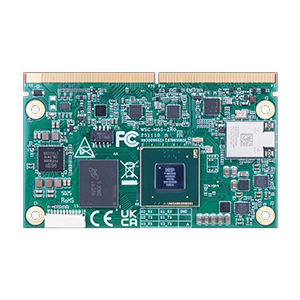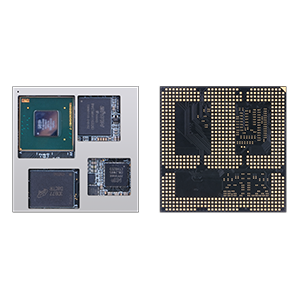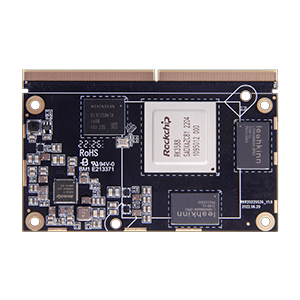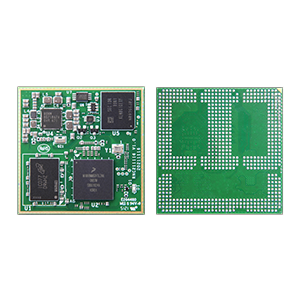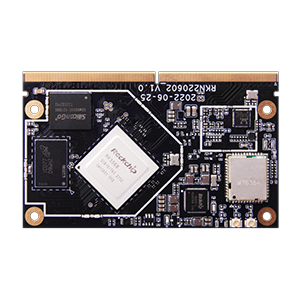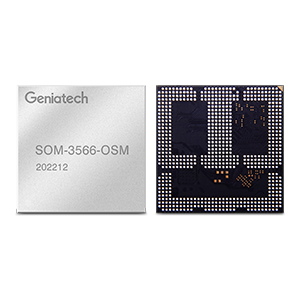What are CoMs?
Computer on Modules (CoMs), also known as System on Modules (SoMs), are a type of computer hardware module designed to provide the core processing capabilities of a computer system in a compact and standardized form factor.
SoMs are widely used in various embedded computing applications, including industrial automation, medical devices, automotive systems, digital signage, and IoT (Internet of Things) devices, among others, where compact size, scalability, and modularity are important considerations.
Benefits of using Computer on Module
- Modularity: SoMs separate the core computing functionality from the carrier board, allowing for easier upgrades and replacements. This modularity simplifies the design process and reduces time-to-market for new products.
- Scalability: SoMs come in various configurations, allowing designers to choose the module that best fits their performance requirements and power constraints. As technology advances, newer CoMs with higher performance or lower power consumption can be easily integrated into existing designs.
- Reduced Development Costs: By leveraging pre-designed CoMs, developers can focus their efforts on designing the carrier board and peripherals specific to their application, rather than starting from scratch. This can significantly reduce development costs and shorten development cycles.
- Standardization: SoMs adhere to standardized form factors and interface connectors, making them interchangeable and compatible with a wide range of carrier boards. This standardization simplifies system design, testing, and maintenance.
- Compact Size: SoMs are engineered to be compact and space-efficient, rendering them perfect for scenarios prioritizing size and weight, like portable devices or embedded systems operating within confined spaces.
Types of System-on-Modules
- OSM (Open Standard Modules): The latest industry standard, streamlines the development, production, and distribution of system modules. Tailored for IoT, industrial automation, medical, and communication devices.
- SMARC (Smart Mobility ARChitecture): Designed for applications requiring low power consumption and high graphics performance, such as IoT gateways and handheld devices.
- Qseven: Optimized for mobile and ultra-portable applications with strict demands for low power and high performance. Size at 70mm x 70mm or 40mm x 70mm, suitable for handheld devices, HMI, signage applications, and IoT projects.
- Rugged COMs: Variations of standard COMs, are designed to withstand harsh environmental conditions like extreme temperatures, shock, vibration, and moisture.
- Customized COMs: Custom COMs are designed with tailored features and interfaces, often used in specialized industrial machinery, automotive systems, and high-performance computing applications.
Geniatech offers a broad range of embedded computing solutions, providing equipment manufacturers with a diverse array of SOM standards to meet the specific needs of their applications.
What is the difference between SBC and SoM?
While both SBCs and SoMs (or COMs) function as embedded computing platforms, SBCs provide an all-in-one, self-contained solution. Conversely, SoMs take a modular approach, enabling enhanced flexibility and scalability through custom carrier boards.
